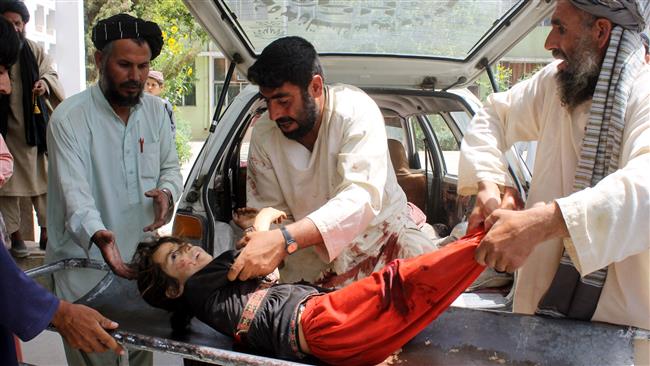Afghan civilian casualties hit record high: UN mission

The number of civilian casualties in the ongoing conflict in Afghanistan has reached a record high in the first half of this year, the United Nations says.
In a report published on Wednesday, the UN Assistance Mission in Afghanistan (UNAMA) said that 1,592 civilians, including women and children, were killed and a further 3,329 were wounded between January and July 2015.
The total number of casualties demonstrated a one-percent increase when compared with the figure recorded the same six-month period last year, the report added.
It also went on to say that on average, nine civilians were killed and 18 others injured every day in the war-ravaged country.
Attributing 70 percent of civilian casualties to “anti-government elements,” including the Taliban militants, the report further noted that female and child casualties rose by 23 percent and 13 percent, respectively.
“The cold statistics of civilian casualties do not adequately capture the horror of violence in Afghanistan, the torn bodies of children, mothers and daughters, sons and fathers,” said UNAMA chief Nicholas Haysom.
Danielle Bell, director of the Human Rights Unit at the UNAMA, also described as “disturbing” the rise in the number of female and child victims, blaming ground fighting for the spike in casualties.

Afghanistan faces a security challenge years after the United States and its allies invaded the country in 2001 as part of Washington’s so-called war on terror. The offensive removed Taliban from power, but many areas in the country are still beset with insecurity.
At least 13,500 foreign forces remain in Afghanistan despite the end of the US-led combat mission, which came on December 31, 2014. The forces, mainly from the US, are there for what Washington calls a support mission.
Afghan security forces have been engaged in various clean-up operations, but the war-torn Asian country is still gripped by the Taliban-led militancy and violence.







